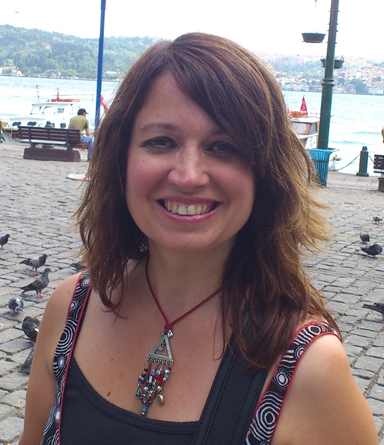 Cheryl Toman, associate professor of French and director of both the Women’s and Gender Studies Program and the Ethnic Studies Program, recently published her second single-authored book, Women Writers of Gabon: Literature and Herstory.
Cheryl Toman, associate professor of French and director of both the Women’s and Gender Studies Program and the Ethnic Studies Program, recently published her second single-authored book, Women Writers of Gabon: Literature and Herstory.
Toman’s new book demonstrates how the invisibility of women (historically, politically, cross-culturally, etc.) has led to the omission of Gabon’s literature from the African canon. It also discusses in depth the unique elements of Gabonese women’s writing that show it is worthy of critical recognition and that prove why Gabonese women writers must be considered a major force in African literature.
The work is the only book-length critical study of Gabonese literature that exists in English. Throughout the various chapters, the book explores, among other things, contributions that are unique to Gabonese women writers such as:
- Definitions of African feminisms as they pertain to Gabonese society;
- The rewriting of oral histories, rituals and traditions of the Fang ethnic group;
- One of the first introductions of same-sex couples in African Francophone literature;
- Discussions on the impact of witchcraft on development; and
- The appropriating of the epic poetry known as the mvet.
Professor Ayo Coly of Dartmouth College endorsed the book, stating: “This is a landmark book that fills a major gap in African literary studies by attending to the overlooked and lesser-known Gabonese literary tradition. Cheryl Toman delivers a brilliant literary, cultural and feminist analysis of Gabonese women writings that provide critical insights to a vibrant literary scene in Gabon.”
The book also has the endorsement of Professor Mildred Mortimer, a pioneer in African Francophone literature from the University of Colorado.
Mortimer said: “Presenting her readers with an insightful analysis of the works of the first generation of women writers of Gabon, Cheryl Toman examines the ways in which the writers articulate the economic, political and social issues of their society and depict the richness of their unique cultural heritage. Arguing that Gabonese women writers have not received the attention they merit, she confirms the unique contributions of Gabonese women writers to contemporary African literature.”
Toman has worked with Gabonese women writers for the past eight years and her research included two substantial trips to Gabon for field work. Her work had been supported by the Museum of Fine Arts Houston as a recipient of the Dora Maar Fellowship in France in addition to CWRU’s ACES+ Grant and grants from the Baker-Nord Center for the Humanities.

